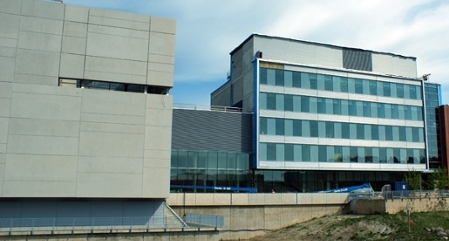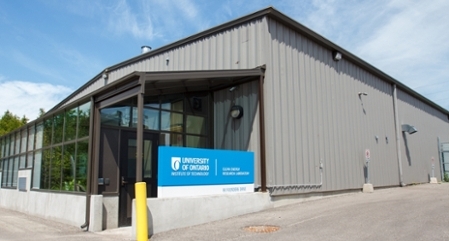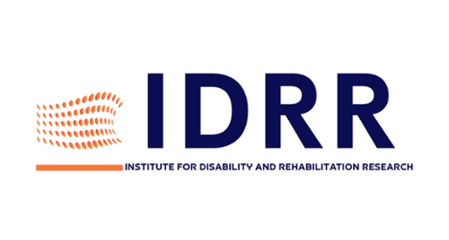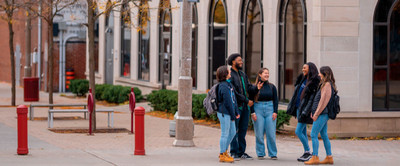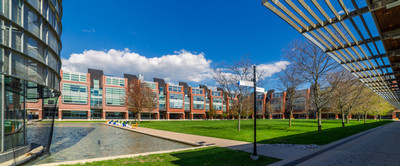Outreach and community engagement
Our outreach initiatives are focused on helping first-generation students, and those in racialized and underrepresented communitites, make an earlier connection to post-secondary education.
Through collaboration with community agencies, we aim to equip students in grades 7 to 12 with the information and knowledge to pursue their academic goals, and guidance throughout their path to university.
These programs will help to support students navigate and overcome systemic barriers, and ultimately achieve their educational and career goals. Programming may include presentations, Q&A sessions, campus visits and tours, supports and services, and community events.
Topics covered in our outreach programming:
-
Equity, diversity and inclusion (EDI) in post-secondary
To inform students and parents about the progressive Equity, Diversity and Inclusion (EDI) landscape within post-secondary education—from policies and procedures that aim to ensure equitable treatment, to learning opportunities geared towards the advancement knowledge about EDI for students, faculty and staff. The goal is to introduce these concepts early to students in racialized and underrepresented communitites, to instill a sense of belonging in higher education and cultivate a deeper understanding of the supports, services and culture in post-secondary institutions for parents, guardians and/or supporters.
-
High school course selection
Geared towards students in grades 7 to 8, information regarding which high school courses and extracurricular subjects to pursue to help ensure that students are set on the right path at an early to age to achieve their educational and career goals.
-
Information for parents, guardians and supporters
To help dispel myths and misconceptions about post-secondary education for the parents, guardians and supporters of first-generation students. The goal is to provide a basis of knowledge about post-secondary requirements, processes and culture to empower the families of first-generation students to provide well-informed guidance and support.
-
Post-secondary information
General information about post-secondary education, including pathways to higher education, an overview of admission requirements, and dispelling myths and misconceptions. We also will cover career paths, guided by the specific career interests of youth and young students, and discuss the benefits that post-secondary education can offer in the pursit of these careers.
-
Student Awards and Financial Aid
Information about scholarships, bursaries and awards for post-secondary education, including internal and external opportunities, where to find them and how to apply. We will also cover information on other types of financial aid, such as The Ontario Student Assistance Program (OSAP), as well as employment opportunities and budgeting tips. The goal is to educate youth about the cost of university, and provide tangible ways to finance their education and reduce the financial barrier to post-secondary.
-
Time management
Offering advice on how to best manage time in high school and post-secondary education for the greatest likelihood of success. Understanding that students may have several other commitments beyond their academics, such as family duties, extracurricular activities, and volunteer and/or work, and providing guidance on how to prioritize tasks, find a good balance, and maintain their mental and physical health.
